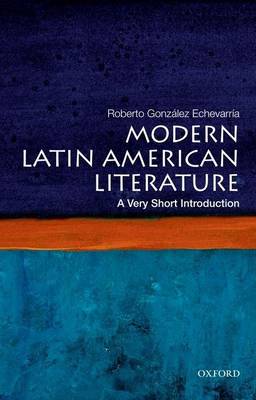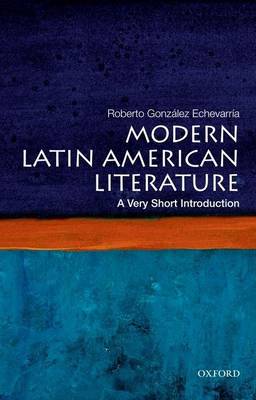
- Afhalen na 1 uur in een winkel met voorraad
- Gratis thuislevering in België vanaf € 30
- Ruim aanbod met 7 miljoen producten
- Afhalen na 1 uur in een winkel met voorraad
- Gratis thuislevering in België vanaf € 30
- Ruim aanbod met 7 miljoen producten
Zoeken
€ 18,45
+ 36 punten
Omschrijving
In the 1960s, Latin American literature became known worldwide as never before. Writers such as Jorge Luis Borges, Gabriel García Márquez, Mario Vargas Llosa, Carlos Fuentes, Pablo Neruda, Octavio Paz, and Mario Vargas Llosa all became part of the general culture of educated readers of English, French, German, and Italian. But few know about the literary tradition from which these writers emerged. Modern Latin American Literature: A Very Short Introduction remedies this situation, providing an overview of Latin American literature from the late eighteenth century to the present. Roberto González Echevarría covers a wide range of topics, large and small, highlighting how Latin American literature became conscious of its continental scope and international reach in moments of political crisis, such as independence from Spain, the Spanish-American War, and the Mexican and Cuban revolutions. Within this narrative, the author discusses the major writers of Latin American literature, from Andrés Bello and José María Heredia through Borges and García Márquez to Fernando Vallejo and Roberto Bolaño. About the Series: Combining authority with wit, accessibility, and style, Very Short Introductions offer an introduction to some of life's most interesting topics. Written by experts for the newcomer, they demonstrate the finest contemporary thinking about the central problems and issues in hundreds of key topics, from philosophy to Freud, quantum theory to Islam
Specificaties
Betrokkenen
- Auteur(s):
- Uitgeverij:
Inhoud
- Aantal bladzijden:
- 152
- Taal:
- Engels
- Reeks:
Eigenschappen
- Productcode (EAN):
- 9780199754915
- Verschijningsdatum:
- 24/01/2012
- Uitvoering:
- Paperback
- Formaat:
- Trade paperback (VS)
- Afmetingen:
- 107 mm x 170 mm
- Gewicht:
- 113 g

Alleen bij Standaard Boekhandel
+ 36 punten op je klantenkaart van Standaard Boekhandel
Beoordelingen
We publiceren alleen reviews die voldoen aan de voorwaarden voor reviews. Bekijk onze voorwaarden voor reviews.











